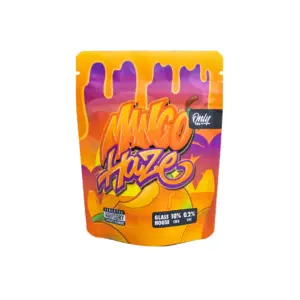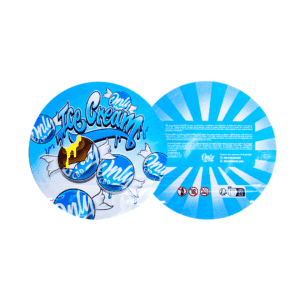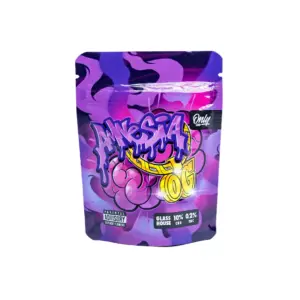CBD is a popular cannabinoid from the cannabis plant, known for its medicinal value. Although CBD oil isn't intoxicating, consumers should be aware of its potential side effects (as well as the presence of THC) to avoid road scares.
WHAT IS CBD?
Cannabidiol (CBD) is a chemical component of the cannabis plant. This molecule has gained ground in recent years, and continues to do so as scientific research determines its action in the body and its potential role in treating various conditions and diseases. This cannabinoid is popular both medicinally and recreationally. Recreationally, CBD is used to induce feelings of calm, clarity, and relaxation. Medicinally, it is used to obtain symptomatic relief, as cannabidiol has anxiolytic, anticonvulsant, antitumor, antioxidant, and neuroprotective effects.
CBD is classified as non-psychoactive. However, this molecule can subtly influence mental state. As cannabis research pioneer Dr. Ethan Russo has previously stated, it would be more accurate to say that CBD is "not intoxicating." THC achieves its psychoactive states by binding to CB1 receptors in the central nervous system. These receptors are part of the endocannabinoid system, a system of receptors distributed throughout the body and contained in the membranes of many different cell types. CBD exerts many of its effects by interacting with the endocannabinoid system, but in a more indirect way.
CBD AND THE BRAIN
CBD is not directly psychoactive, like its cannabinoid sister, THC. However, it can affect mood, and possibly alertness, as it causes alterations in brain chemistry.
Cannabidiol, in high doses, is known to affect serotonin receptors in the brain, an action partially responsible for the molecule's anxiolytic effects. Furthermore, CBD can act as a reuptake inhibitor in the brain, allowing it to increase and maintain high levels of anandamide, an endocannabinoid molecularly similar to THC. CBD also inhibits the reuptake of adenosine, increasing levels of this molecule in the brain and further contributing to its anti-anxiety effects.
Furthermore, CBD has been documented as an allosteric modulator, meaning it can either promote or inhibit receptor transmission. More specifically, CBD acts as a positive allosteric modulator of the GABA-A receptor. In doing so, CBD causes this receptor to bind more readily to the neurotransmitter GABA. GABA has inhibitory effects on nervous system activity, inducing states of calm and relaxation.
WHAT DOES THIS MEAN FOR DRIVING SAFETY?
CBD generally produces changes in mental state by increasing levels of anandamide and GABA in the brain, resulting in increased relaxation and decreased excitability. These effects are not intoxicating, but they certainly alter mood. Therefore, for most people, CBD does not affect driving performance. However, it should be noted that some people experience side effects from this cannabinoid that could impair driving ability.
Documented side effects include low blood pressure, dizziness, and drowsiness. For these reasons, it's recommended that each person get used to how CBD affects them before using it and getting in the car. If the molecule causes any of these side effects, it's probably best not to drive. Instead, you can talk to your doctor and discuss why these effects occur. It may only require a dose adjustment.
Small doses of CBD are associated with stimulating effects that elevate mood, while larger doses are linked to more sedating effects. For this reason, when you begin driving with CBD, it's best to start with low doses. Additionally, CBD affects each person differently. What may be a small dose for one user may cause sedating effects for another. Determine your tolerance level from the comfort and safety of your home, rather than behind the wheel.
THC CONTENT IN CBD PRODUCTS
We've basically given CBD the green light when it comes to driving safety; but then laws come along to complicate matters. Many CBD oils contain small amounts of THC, and many European countries allow legal trace amounts of this cannabinoid between 0.2–0.6%. These amounts are so small that they probably won't cause intoxication unless huge amounts of the oil are consumed. But even then, the greatest effect is probably the sedation produced by the high dose of CBD.
Beyond the psychoactive effects, the residual amounts of THC in many CBD products could put drivers at risk of being penalized for driving under the influence of drugs. Many countries have strict zero-tolerance laws for THC blood levels. In the US, some European countries, and elsewhere, if police suspect you of drunk driving, they can stop your car and conduct a test using methods such as saliva tests. In the UK, for example, the threshold limit is a THC level of just 2µg/L (micrograms); exceeding this level can lead to fines and a suspended driver's license. Such small amounts could even be considered "accidental exposure." These tests can detect the presence of cannabinoids up to 10 hours after consumption.
CONCLUSION
CBD is not generally considered a psychoactive compound, as it does not produce intoxicating effects or impair users' ability to function normally. Depending on the dose and observed effects, it is likely safe to use CBD before driving. However, cannabis has been a topic of debate and controversy for some time. Due to strict laws in some countries, even minimal amounts of THC in the body can cause legal issues while driving. Since many CBD products contain small doses of THC, deciding whether this risk is worth taking is a personal choice.

























